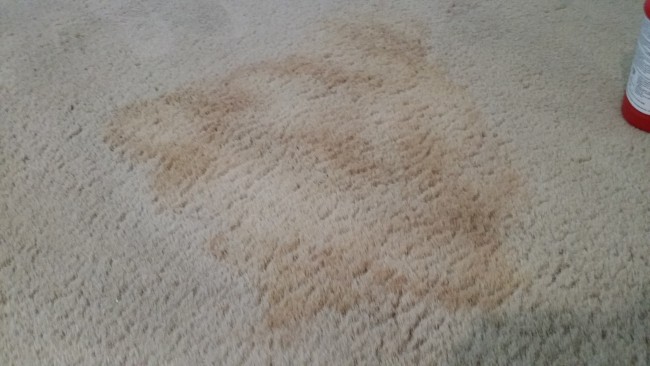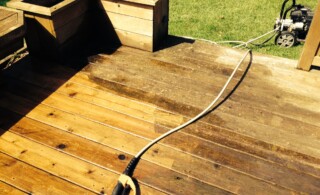
July 16, 2021
Reviewed by Asya Biddle, Cleaning Services Professional & Owner of The Dust Busters, Williamsport, PAWritten by HomeAdvisor.
It’s one thing if your home has a little clutter or disorganization. Spending an hour to straighten your home for guests or a party is a natural activity for most homeowners. When the invisible, invasive force of a nasty odor hits your home, on the other hand, it can be a much bigger problem than a quick cleaning will fix. Each odor must be attacked in a different way to ensure effective removal. Diligence, persistence and prudence must all be practiced for odor control without ruining the surface.
On This Page:
Carpet Odor Removal
Carpet odor removal can be a hit or miss project. Discovering the cause of the odor can help prevent ineffective treatments. If it’s caused by pets and byproducts haven’t saturated the padding, a simple steam cleaning and deodorizer will often do the trick. If your carpet odor is caused by bacteria, however, steam cleaning may actually make the odor worse. If the odor has penetrated the carpet padding, you may have considerable trouble with odor removal. Reputable carpet cleaning services attend seminars to keep abreast of the latest products and techniques.
Keep in mind, too, that hard surface flooring can also be vulnerable to odors and should be treated just as delicately and meticulously as carpet. Steam cleaning is often still the way to go (use an attachment designed for hard surface flooring), but the cleaning product must have a compatible pH level (pH neutral cleaners are always best) or you run the risk of ruining your floor. You may have to run the steam cleaner and deodorizer multiple times for difficult odors, and in the end, you may still require the expertise of a professional.
Septic Tank Odor Control and Removal
It can take some considerable maintenance to make your septic tank run smoothly, and even if reasonably maintained tanks can cause an odor during the summer when open windows or your air conditioning unit drags air inside your home. Worse yet, your backyard BBQs may be utterly ruined. Even before your wastewater hits your septic tank or sewer system, odors can infiltrate your home through a kind of backwash. In order for wastewater to be drained, displaced air must be filtered from your home. Cheaper roof vent systems may not be able to completely filter this air, leading to odor control problems.
Nearly always, septic tank odors are a job for a septic tank professional. You should try to find someone who has extensive knowledge of both general plumbing and septic systems. If you can’t find such a contractor, do your best to identify the most likely source of the odor problem so you’ll know if your septic tank odor is being caused by the septic tank itself or your home venting system.
Mildew Odor Removal
Mildew odor is one of the most common ways to identify a hidden mildew problem. If you have mildew, you have a water leak or some other moisture related problem. Mildew odor control isn’t particularly difficult, except when you can’t find and remove the mildew itself. If this is the case, it’s probably time to hire a mildew removal contractor to come in and find your water problem, remove the mildew and deodorize the trouble area.
3 Quick Ways to Remove Odors
You don’t have to suffer from unpleasant odors in your home. Use these three tricks to kill unpleasant smells:
- Address your trash. Pace a newspaper or dryer sheet under your garbage bag to absorb any foul-smelling liquids that may leak out.
- Eliminate pet urine. Spray pet accidents with a mouthwash-water mixture. Pat the affected area and let it dry.
- Tackle smelly furniture. Mix together baking soda and 40 drops of essential oil. Spread the solution of foul-smelling furniture and vacuum it up.
 Metal Polish for a Stunning Finish
Metal Polish for a Stunning Finish  Pressure Washers – How to Choose the Right Model
Pressure Washers – How to Choose the Right Model  24 Not-So-Human Hired Housekeepers, Butlers & Aides From Fiction
24 Not-So-Human Hired Housekeepers, Butlers & Aides From Fiction  Let an Automatic Pool Cleaner Do the Work for You
Let an Automatic Pool Cleaner Do the Work for You  How to Regularly Clean Your Upholstery, From Random Spills to Pet Hair
How to Regularly Clean Your Upholstery, From Random Spills to Pet Hair 

Are You Familiar With This Topic? Share Your Experience.